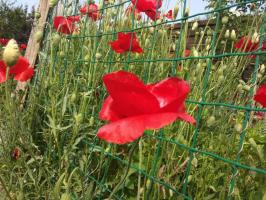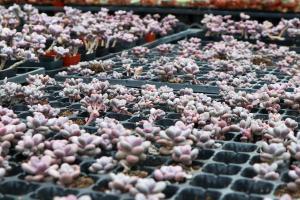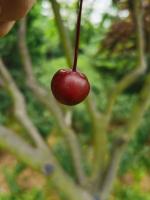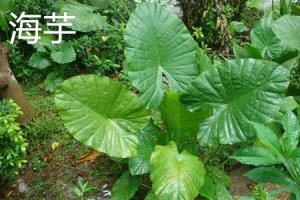Introduction
Potted ivy plants are one of the most popular indoor plants because of their hardiness and ease of care. However, when it comes to the winter months, many plant owners wonder if their potted ivy plants will survive the cold temperatures. In this article, we will explore whether potted ivy plants can survive the winter and what steps you can take to ensure their survival.
The Challenge of Winter
The biggest challenge that potted ivy plants face during the winter months is the dry indoor heat. The lack of humidity in the air can cause the leaves to dry out and the plant to wilt. Additionally, the lack of sunlight can slow growth and cause leaves to drop. The combination of these factors can make it difficult for potted ivy plants to survive the winter months.
Give Your Potted Ivy Some TLC
To ensure that your potted ivy survives the winter, it is essential to give it some extra TLC. One of the best things you can do for your plant is to keep it away from any drafts or areas with extreme temperature fluctuations. Keep it in a well-lit area, preferably near a south-facing window, to ensure that it receives as much sunlight as possible.
In terms of watering, it is crucial not to overwater your potted ivy. Allow the soil to dry out slightly before watering and be sure to use room temperature water. Overwatering or watering with cold water can shock the plant's roots and lead to root rot.
To combat the dry indoor air, consider placing a humidifier near your plant or misting its leaves regularly. This extra moisture will help to keep the leaves from drying out and also prevent pests from taking hold.
Prepare for Winter Dormancy
During the winter months, potted ivy plants often enter a period of dormancy, where they slow their growth and conserve energy. It is essential to understand this natural cycle of your plant and not panic when your plant appears to be dying.
During dormancy, it's best to limit feeding your plant to once every two to three months. Use a balanced fertilizer and follow the manufacturer's instructions. Be sure not to overfertilize, as this can be harmful to your plant.
Conclusion
In conclusion, potted ivy plants can survive the winter months if you provide them with the proper care and attention. Keep them away from drafts and extreme temperature fluctuations, provide them with enough sunlight, and be mindful of the indoor air's dryness. Remember to adjust your watering and feeding schedules to account for the plant's natural cycle of dormancy. With these steps, you can enjoy your potted ivy plant all year round.

 how many times do yo...
how many times do yo... how many planted tre...
how many planted tre... how many pine trees ...
how many pine trees ... how many pecan trees...
how many pecan trees... how many plants comp...
how many plants comp... how many plants can ...
how many plants can ... how many plants and ...
how many plants and ... how many pepper plan...
how many pepper plan...
































